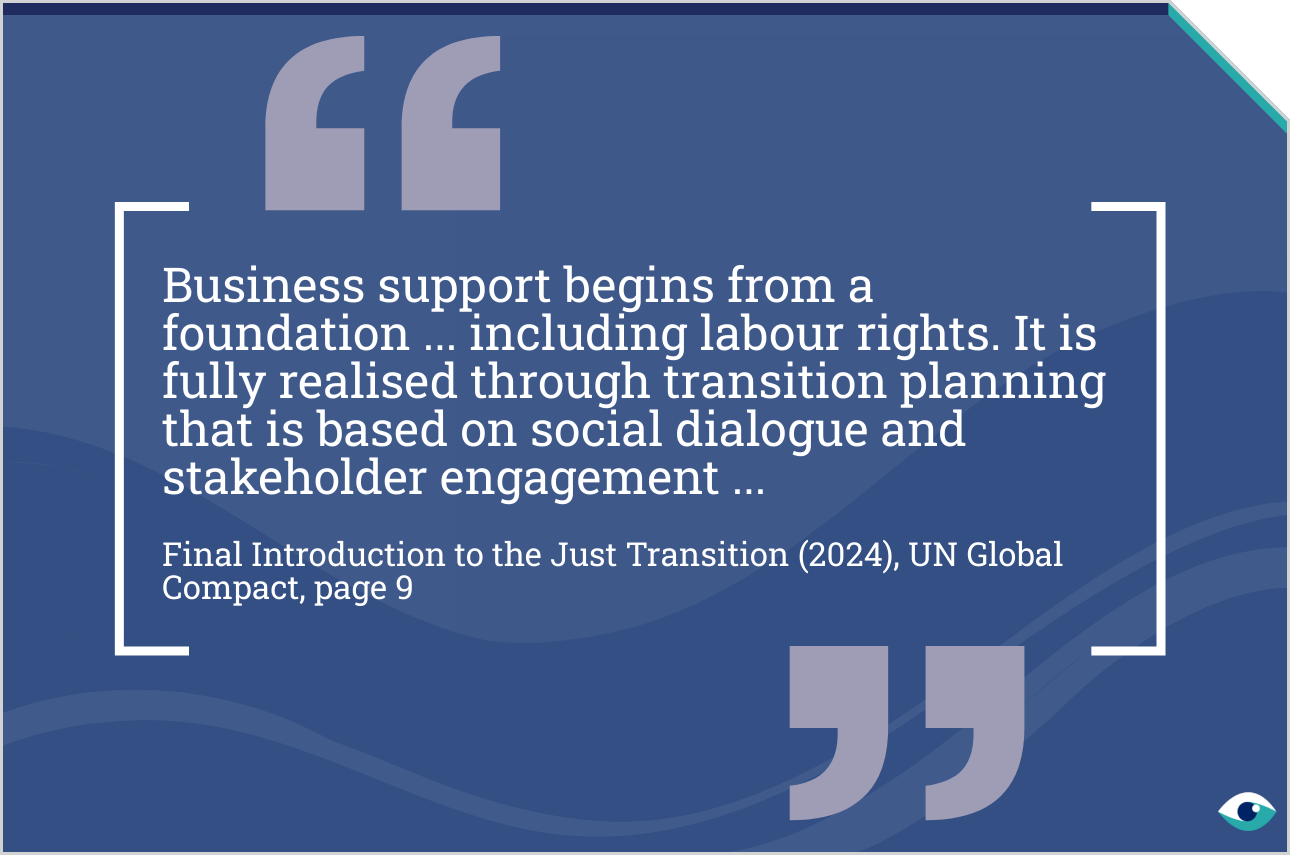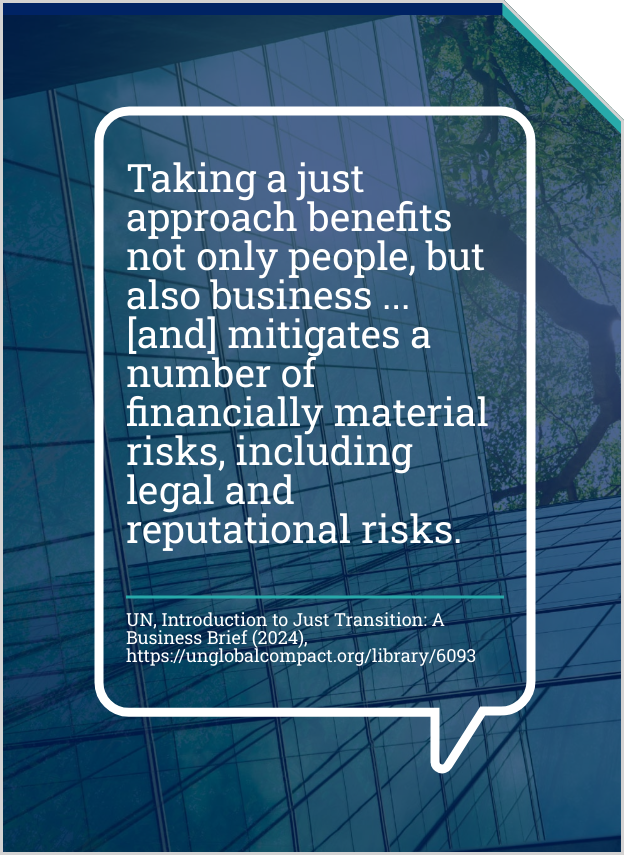Sustainable finance provides opportunities to alleviate energy poverty and ensure universal access to affordable energy. Just Energy Transition Partnerships (JETPs) have been established with South Africa, Indonesia and Vietnam in recent years to support a "just" pathway for decarbonisation, underscoring the role of sustainable finance in energy transitions. However, uncertainties remain about the ability of a just transition to meet the needs of vulnerable communities while ensuring the support of organised labour. Businesses should integrate Just Transition strategies into initiatives to reduce risks and strengthen relations with workers and communities.

Driving action and disclosure in the just energy transition
As regulatory pressure increases, companies must balance decarbonisation with workforce development to meet just transition requirements
Policy
Energy (all industries)
Publication date: 29 Sep 2024
By Eye For Business
AT A GLANCE
The main sustainability-related risk is the inability to balance decarbonisation efforts with workforce development under just transition regulations.
This risk is critical as regulatory pressure, including carbon pricing and market failures in carbon trading, persists.
Failing to meet these requirements could undermine investor confidence and resilience.
Business implications
The global energy sector faces increasing pressure to align with planetary limits as developed nations struggle to overhaul production and consumption systems. This necessitates a just transition that addresses the survival interests of workers and equitably distributes the financial burdens of climate change. The Just Transition model shifts the focus from traditional state-centric negotiations like those at the COP, to broader systemic changes driven by social movements, trade unions and other key stakeholders.
Risks and opportunities
The energy sector must contend with the significant risk posed by the market failure to accurately price greenhouse gas emissions. This failure undermines the competitiveness of renewable energy solutions and perpetuates inequalities, particularly in regions reliant on fossil fuels. While pricing mechanisms such as carbon taxes have been introduced, their regressive nature often places the heaviest burden on low-income populations, complicating equitable energy reform.

Corporate actions
Energy companies are increasingly adopting Just Transition strategies to support decarbonisation efforts. Novel JETPs signed with South Africa, Indonesia and Vietnam in 2021-22 aim to decarbonise energy production through investments in solar, wind, geothermal and hydro energy. Leading energy firms are also expanding their environmental justice programmes and committing to workforce diversity and the inclusion of affected communities. Prominent actions includes skills development hubs to support employment transitions and economic resilience in local areas.

Disclosure standards
The European Business Toolbox for Just Transition and newly developed roadmaps offer frameworks for transparent reporting on social outcomes ensuring accountability across the energy sector. Additionally, the integration of monitoring systems within JETPs enhances stakeholder confidence. These frameworks support firms in reporting the environmental and social impacts of their operations, helping to standardise the transition process.
FURTHER READING
- Final Introduction to the Just Transition (UN Global Compact)
- Energy, just transition, and sustainability: What's new? (Energy Economics)
- Breakthrough Agenda Report 2024 (IEA)
